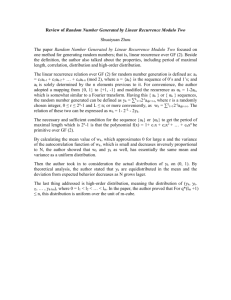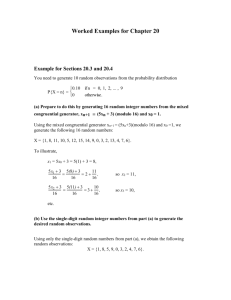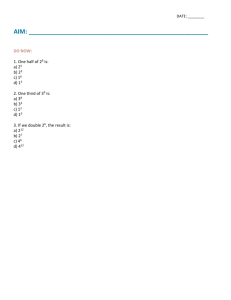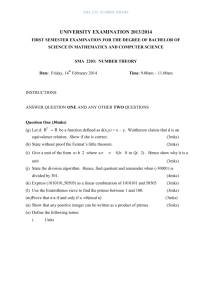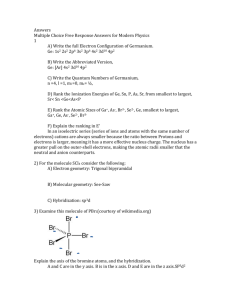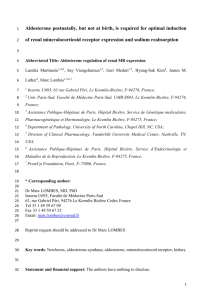Summary5
advertisement
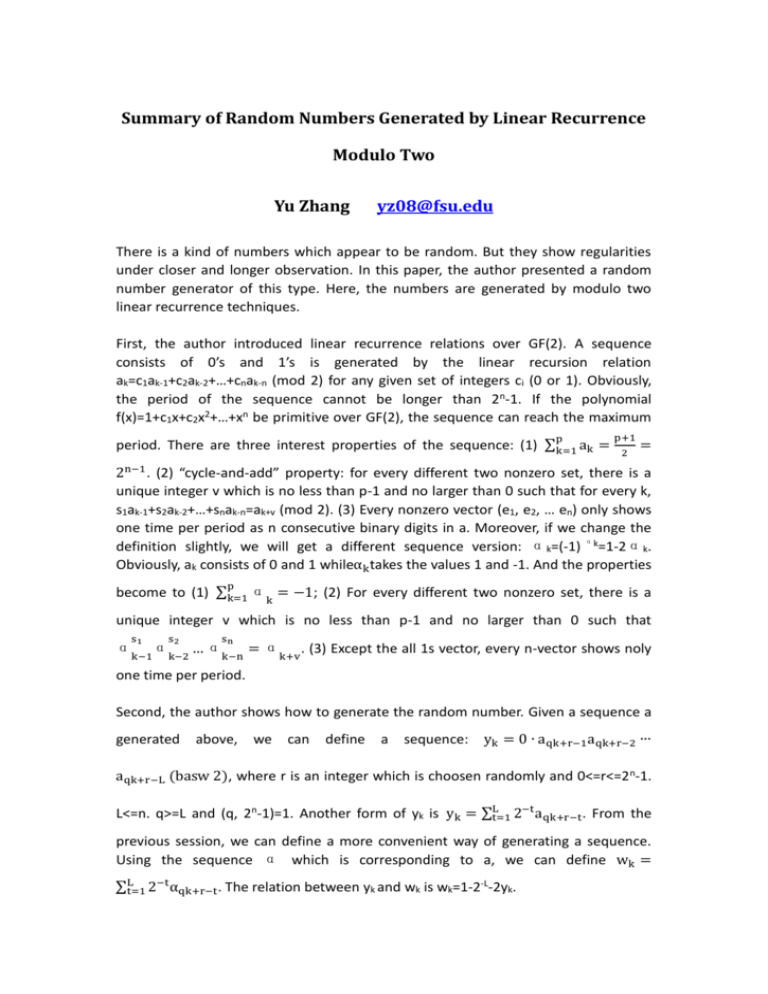
Summary of Random Numbers Generated by Linear Recurrence Modulo Two Yu Zhang yz08@fsu.edu There is a kind of numbers which appear to be random. But they show regularities under closer and longer observation. In this paper, the author presented a random number generator of this type. Here, the numbers are generated by modulo two linear recurrence techniques. First, the author introduced linear recurrence relations over GF(2). A sequence consists of 0’s and 1’s is generated by the linear recursion relation ak=c1ak-1+c2ak-2+…+cnak-n (mod 2) for any given set of integers ci (0 or 1). Obviously, the period of the sequence cannot be longer than 2n-1. If the polynomial f(x)=1+c1x+c2x2+…+xn be primitive over GF(2), the sequence can reach the maximum p period. There are three interest properties of the sequence: (1) ∑k=1 ak = p+1 2 = 2n−1 . (2) “cycle-and-add” property: for every different two nonzero set, there is a unique integer v which is no less than p-1 and no larger than 0 such that for every k, s1ak-1+s2ak-2+…+snak-n=ak+v (mod 2). (3) Every nonzero vector (e1, e2, … en) only shows one time per period as n consecutive binary digits in a. Moreover, if we change the definition slightly, we will get a different sequence version: α k=(-1) α k=1-2α k. Obviously, ak consists of 0 and 1 whileαk takes the values 1 and -1. And the properties p become to (1) ∑k=1 αk = −1; (2) For every different two nonzero set, there is a unique integer v which is no less than p-1 and no larger than 0 such that s1 s2 sn αk−1 αk−2 … αk−n = αk+v . (3) Except the all 1s vector, every n-vector shows noly one time per period. Second, the author shows how to generate the random number. Given a sequence a generated above, we can define a sequence: yk = 0 ∙ aqk+r−1 aqk+r−2 ∙∙∙ aqk+r−L (basw 2), where r is an integer which is choosen randomly and 0<=r<=2 n-1. L<=n. q>=L and (q, 2n-1)=1. Another form of yk is yk = ∑Lt=1 2−t aqk+r−t . From the previous session, we can define a more convenient way of generating a sequence. Using the sequence α which is corresponding to a, we can define wk = ∑Lt=1 2−t αqk+r−t . The relation between yk and wk is wk=1-2-L-2yk. Finally, the author pointed that there are many properties of this kind of random numbers. For example, the mean value μ of the sequence wk is μ = 1−2−L −2−n (1−2−n ) 1−2−L 2 ≈ 0, and the variance σ 1 2−n (1−2−n )2 )] ≈ 3. 2 1 is σ = 3 + 1 1−2−2L 2−n [3 (( 1−2−n ) − (1−2−L ) 1−2−n 2 −
